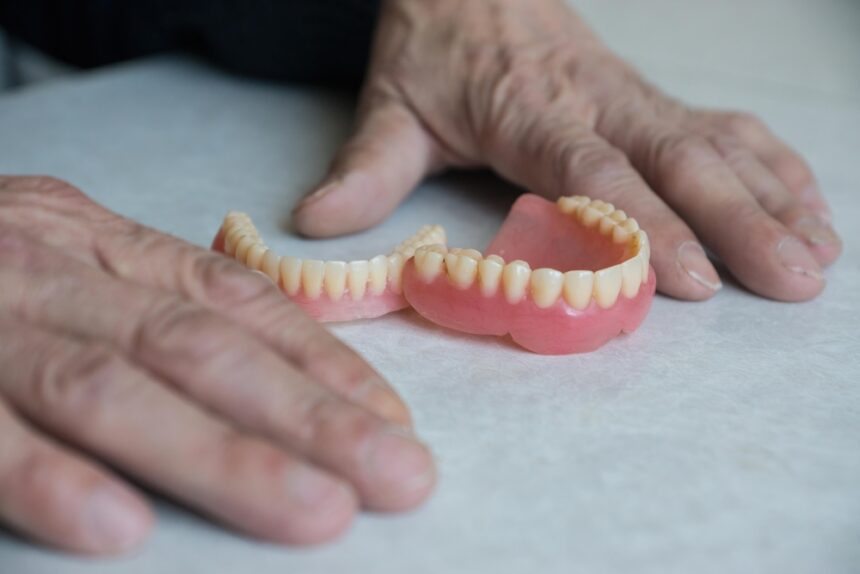Lower dentures are an essential solution for individuals who have lost their lower natural teeth due to decay, gum disease, injury, or other reasons. While dentures help restore function and aesthetics, they often come with unique challenges—especially for the lower jaw. If you’re experiencing difficulties with your lower dentures, you’re not alone. Thankfully, modern dental advancements provide several effective solutions.
If you’re seeking professional help from a trusted Dental Clinic in North York, DentalX Downsview Dental Clinic offers personalized denture care along with a range of advanced dental treatments. Located at 170 Rimrock Rd., Unit D-2, North York, ON, the clinic is known for providing compassionate Dental Care in North York tailored to each patient’s needs.
Why Lower Dentures Are More Problematic
Lower dentures tend to pose more difficulties than upper dentures due to anatomical and functional differences. The lower jaw is mobile and has a smaller surface area for denture support. This often results in:
- Loose or shifting dentures
- Gum irritation and sores
- Difficulty speaking or chewing
- Excessive salivation or dry mouth
Unlike upper dentures, which benefit from suction against the palate, lower dentures rely heavily on muscle control and fit to stay in place. This makes professional care from an experienced Dentist in North York crucial for effective outcomes.
Common Lower Denture Problems
Here are the most frequent issues associated with lower dentures and what might be causing them:
1. Poor Fit
Over time, your jawbone changes shape due to bone resorption. This can lead to ill-fitting dentures that slip or wobble.
2. Soreness and Ulcers
Friction and pressure from an unstable denture can irritate the gums, leading to painful sores.
3. Speech Difficulties
Wearing new dentures may initially affect your ability to pronounce certain words. This typically improves as you adapt, but a poor fit can make it persist.
4. Chewing Problems
An unstable lower denture can make it hard to chew, especially tougher foods. This may discourage you from eating nutritious meals.
5. Bone Loss
Lower dentures, especially if not fitted properly, can accelerate bone loss over time, worsening the fit and comfort of the appliance.
6. Frequent Need for Adhesives
Excessive use of dental adhesives may indicate poor fit or the need for relining or adjustment.
Proven Solutions for Lower Denture Issues
Fortunately, several solutions are available to improve the stability, comfort, and performance of your lower dentures.
1. Denture Relining
If your dentures feel loose, relining can reshape the underside for a snugger fit. This is often necessary every few years as your gums and bone change.
2. Implant-Supported Dentures
One of the most stable options for lower dentures involves securing them with dental implants. These implants anchor the denture to the jawbone, offering superior stability and function.
3. Soft Liners
For patients with sensitive gums or bone loss, soft liners provide a cushion that helps reduce sore spots and discomfort.
4. Regular Adjustments
Routine dental visits allow your Dentist in North York to make minor modifications and catch early signs of trouble.
5. Upgraded Materials
Modern denture materials are more durable and comfortable than ever. If your dentures are older, it may be time for an upgrade to a lighter, more natural-looking model.
6. Professional Evaluation
Persistent issues should be evaluated by an expert team like DentalX Downsview Dental Clinic, where you can also explore related services such as Dental Extractions in North York to address any underlying issues.
Tips to Manage Lower Dentures at Home
- Practice speaking and reading aloud to get used to your new dentures.
- Use a small amount of adhesive if needed, but don’t rely on it permanently.
- Maintain excellent oral hygiene to prevent infections and gum irritation.
- Chew evenly on both sides to avoid tipping or dislodging the denture.
- Remove dentures at night to allow your gums to rest and prevent fungal infections.
When to Seek Help
If you’re experiencing persistent discomfort, difficulty chewing, or frequent slippage, it’s time to consult a professional. At DentalX Downsview Dental Clinic, the team offers comprehensive assessments and custom solutions for lower denture problems. With years of experience in delivering comfortable and functional dental appliances, they ensure each patient regains confidence in their smile.
Frequently Asked Questions (FAQs)
1. Why are my lower dentures always loose?
Lower dentures can become loose due to bone loss or an outdated fit. Relining, implants, or adjustments may be necessary.
2. Can lower dentures be made more stable?
Yes, options like implant-supported dentures and soft liners significantly enhance lower denture stability.
3. How often should lower dentures be replaced?
Typically every 5–10 years, depending on wear and changes in your mouth’s structure.
4. Are adhesives safe to use daily?
While occasional use is fine, relying heavily on adhesives may indicate that your dentures need professional adjustment.
5. Is it normal to have sore gums with new dentures?
Some discomfort is normal initially, but ongoing soreness suggests the fit may be off and requires a dental evaluation.
Conclusion
Lower denture problems can be frustrating, but they are not without solutions. With the right care, regular dental visits, and possibly updated appliances or treatments, you can enjoy a secure and comfortable denture experience. If you’re struggling with your current dentures, reaching out to a reputable clinic like DentalX Downsview Dental Clinic in North York can help you explore the best options available for your individual needs. Your smile deserves expert care and personalized attention—don’t settle for discomfort when solutions are within reach.


